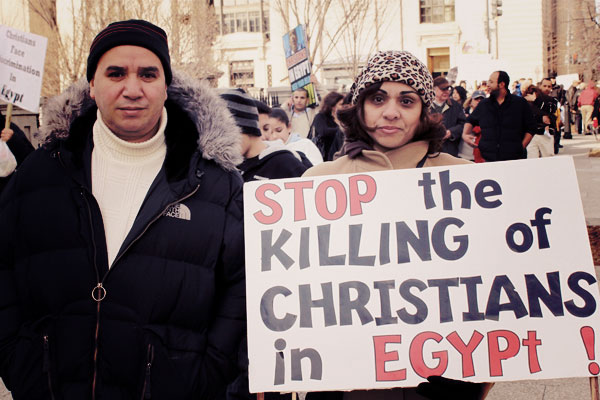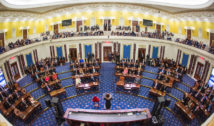
Egyptian Christians Still Waiting for El-Sisi’s Protection
- By Kyle Glatz --
- 02 Jul 2014 --

Egyptian Christians and other religious minorities still hope new president el-Sisi will protect them.
It has been almost a month since the election of Abdel Fattah el-Sisi, an election that was built on a platform of acceptance for religious minorities throughout the region. The beleaguered Christian groups in Egypt have faced a particularly difficult time during the transition period, experiencing high levels of violence and threats. While such attacks have always been a reality to the Coptic Christians, who make up less than ten percent of the population, the fact that the violence has not been curbed has created widespread impatience along with new fears that el-Sisi may not be able to live up to his campaign promises.
Subversive Attacks On Egyptian Christian Minorities
One of the most frustrating facts of life for the Coptic Christians is that they have often been on the receiving end of physical violence in Egypt. This has taken the form of outright attacks in the street as well as systemic violence through the justice system amounting to death sentences in cases that do not meet any precedent for such trials. In one of the most famous cases, the family of a man named Bebawi Makram has appealed directly to el-Sisi in hopes of having the death sentence absolved due to the lack of evidence tying him to the crime. Whether or not el-Sisi will act is not certain, but the family continues to hope that the apparent discrimination will help to free their son and brother.
Reciprocal Support
The Coptic Christians continue to reach out to el-Sisi for aid after being one of his most ardent groups of supporters during his rise to power. While it is unclear what measures he means to take in the long term, there have been a number of reprisals against the Egyptian Christian groups for their support of ousting the former president Mohamed Morsi. There has been an increase in local justice systems seeking trumped-up charges of “Contempt of Religion” against Christian supporters of el-Sisi for seemingly innocuous social media pictures. One case has yielded a six-year sentence for one man accused of presenting an affront to Islam. These discriminatory practices in the Egyptian justice system have resulted in draconian sentences being passed on Egyptian Christians and other religious minorities. This cultural climate has also caused widespread kidnapping and forced conversions of Christians and left the families no recourse for legal action.
While discrimination is nothing new to Egyptian Christians, they are collectively hoping that their willingness to risk their lives to support el-Sisi will be repaid with access to a fair and impartial justice system.


















